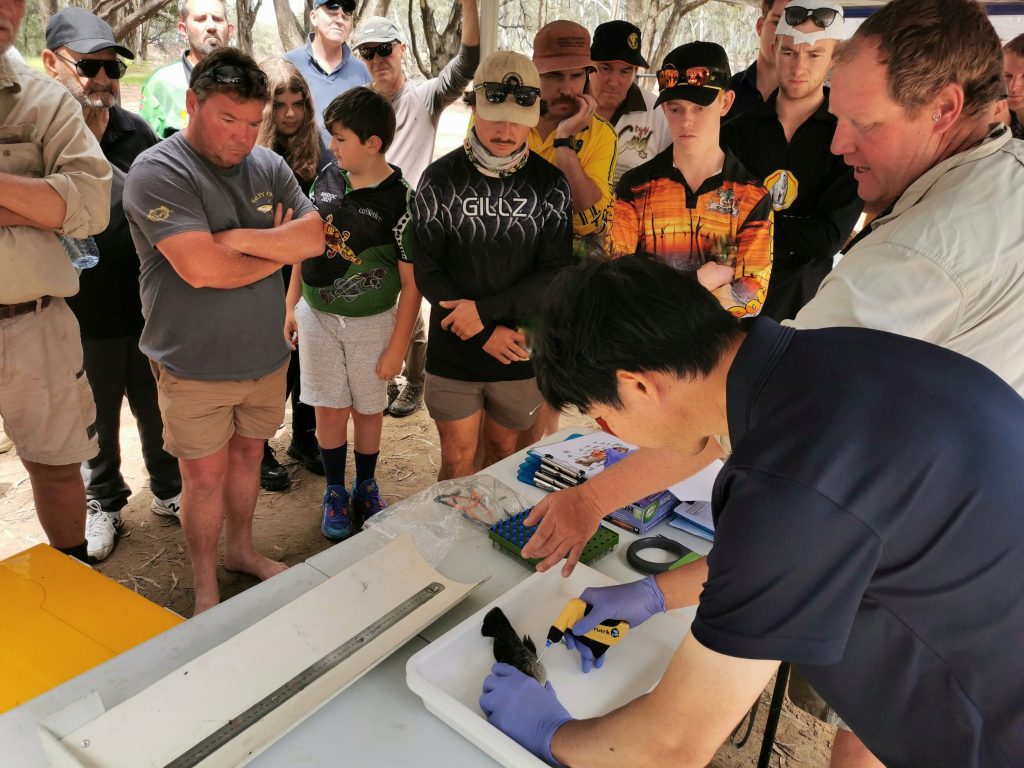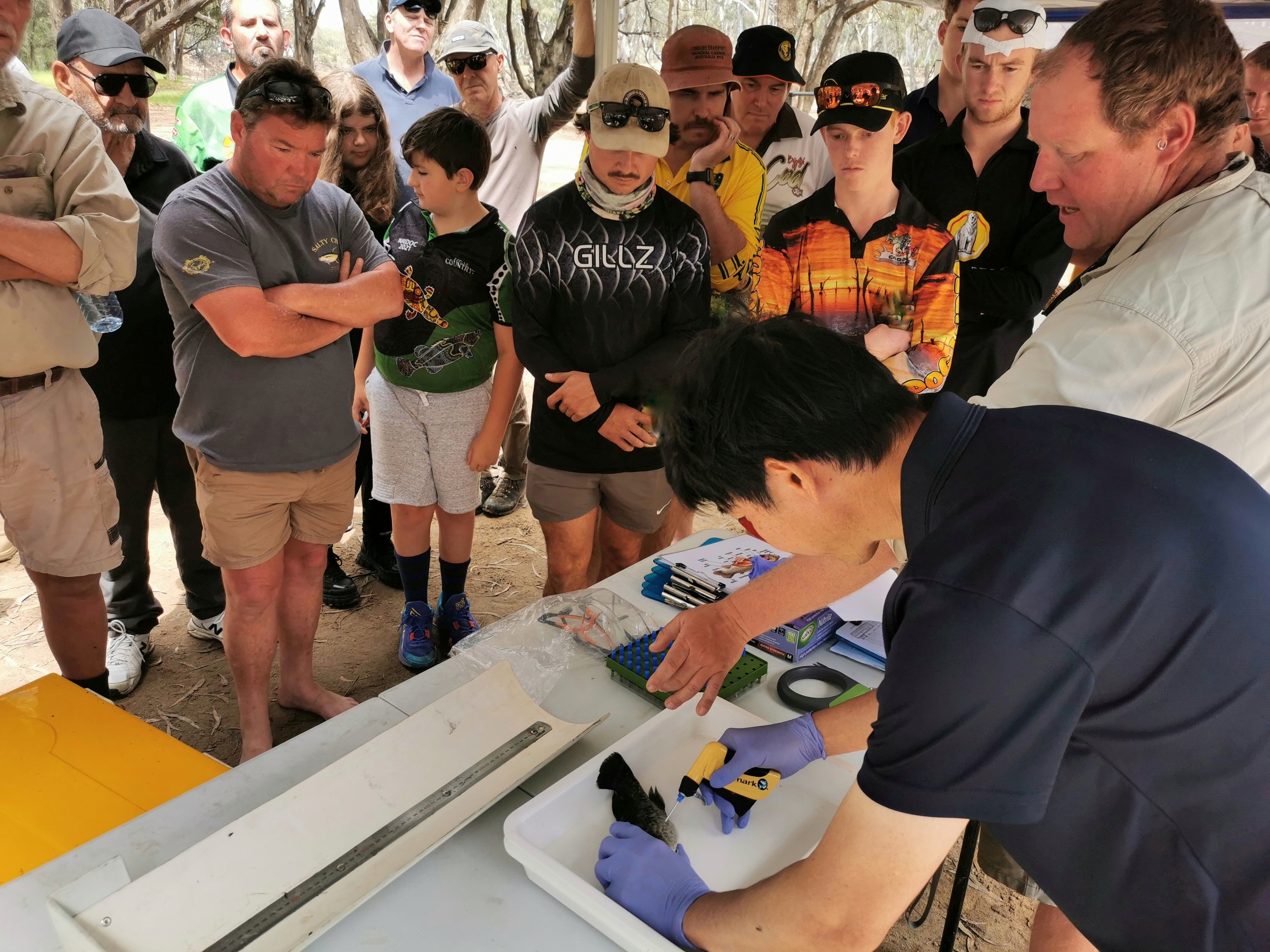One Basin project sees communities collaborating in fish research
news
Published 05 Jun 2024
A One Basin quickstart project to involve local people in fish research passed a significant milestone last month, hosting its first community workshop.
The project, a pilot study, is exploring how to get locals – primarily anglers and First Nations people – to implant ‘tags’ (or small microchips) in native fish, historically the responsibility of government.
The tags ‘ping’ when the fish pass an antenna installed in the river; this can provide a wealth of data on fish migration patterns, habitat preferences, population dynamics, mortality rates and more.
Getting citizen scientists involved expands the pool of tagged fish, which in turn increases the volume of data available, supporting fisheries management and conservation efforts throughout the Murray–Darling Basin.
‘What we’re primarily doing in this pilot is assessing whether local and First Nations communities can be successfully integrated into fish tagging projects, while maintaining animal ethics and scientific rigour,’ says lead researcher Dr Katie Doyle.
‘We’re also exploring how to store, manage and share the data captured’.
Last weekend in Deniliquin, the project held its first workshop. Thirty local people – a mix of young and old – attended the workshop, learning to correctly and humanely insert the small tags into native fish.
‘The enthusiasm from the locals who attended was incredible,’ says Dr Doyle.
‘To have 30 people give up a large chunk of their weekend is really inspiring – they are so interested in understanding the migration of fish and contributing to the good management of their resource.’
The project, a collaboration between One Basin partners Charles Sturt University and OzFish, as well as fish monitoring supplier KarlTek, will host two further workshops next year in Swan Hill and Mildura.
To learn more or get involved, visit https://ozfish.org.au/nsw-native-fish-tagging-eoi-2023/

Participants at the Deniliquin workshop learn to tag fish.
